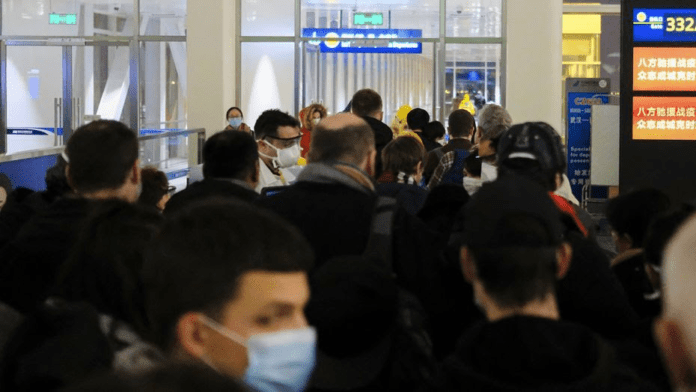Supervisor Jim Desmond
The County of San Diego, the Centers for Disease Control and Prevention (CDC), the World Health Organization, and state and local jurisdictions across the nation are closely monitoring Coronavirus.
It was first detected in December 2019, in Wuhan City, Hubei Province, China and continues to expand globally. A number of countries, including the United States, are actively screening incoming travelers from Wuhan.
Measures are in place to prevent infection and spread to San Diego County residents. The CDC is lead agency on detection, quarantine and treatment. The County of San Diego is working closely with the CDC to assist at the local level and protect the region’s residents.
Although no Coronavirus cases have been confirmed in San Diego County, to date, local health officials know that cases could occur at any time. County Department of Public Health is working with the CDC, the California Department of Public Health and the local medical community and is utilizing standard procedures already in place to isolate, test, and investigate patients under investigation.
As you’ve seen in media reports some individuals are being brought to Marine Corps. Air Station (MCAS) for quarantine. Rest assured all precautions are being taken to keep San Diego residents safe.
How serious is this threat to the public?
It’s important to know that while the Centers for Disease Control and Prevention (CDC) considers this a serious public health threat, based on current information, the immediate health risk from Coronavirus to the general American public is considered low at this time.
What are the symptoms?
Patients infected with Coronavirus have reported mild to severe respiratory illness with symptoms that include:
•Fever
•Cough
•Difficulty Breathing
AND
•Have traveled from Wuhan, China in the last 14 days before the symptoms appeared.
•Have had close contact with a person who is under investigation for the Coronavirus while that person was ill.
•Have had close contact with an ill, laboratory-confirmed Coronavirus patient.
How is Coronavirus Spread?
Human Coronaviruses most commonly are spread from an infected person to others through:
•Coughing and sneezing
•Close personal contact, such as touching or shaking hands.
•Touching an object or surface with the virus on it, then touching your mouth, nose, or eyes before washing your hands.
•Rarely, fecal contamination.
What Can I Do to Prevent Coronavirus?
There is currently no vaccine available to protect against Coronavirus but it is recommended for everyone to get their flu vaccine and practice proven and routine preventive actions to help prevent the spread of respiratory viruses, including:
•Wash your hands often with soap and water for at least 20 seconds. If soap and water are not available, use an alcohol-based hand sanitizer.
•Avoid touching your eyes, nose, and mouth with unwashed hands.
•Avoid close contact with people who are sick.
•Stay home when you are sick.
•Cover your cough or sneeze with a tissue, then throw the tissue in the trash.
•Clean and disinfect frequently touched objects and surfaces.
The CDC recommends that travelers avoid all nonessential travel to China.
What to do if You Think You’ve Been Exposed
If you have had close contact with someone who is confirmed to have, or being evaluated for the Coronavirus, you should:
•Monitor your health starting from the day you first had close contact with the person and continue for 14 days after you last had close contact with the person. Watch for these signs and symptoms:
•Fever. Take your temperature twice a day.
•Coughing.
•Shortness of breath or difficulty breathing.
•Other early symptoms to watch for are chills, body aches, sore throat, headache, diarrhea, nausea/vomiting, and runny nose.
•If you develop fever or any of these symptoms, call your healthcare provider right away.
• Before going to your medical appointment, be sure to tell your healthcare provider about your close contact with someone who is confirmed to have, or being evaluated for, 2019-nCoV infection. This will help the healthcare provider’s office take steps to keep other people from getting infected. Ask your healthcare provider to call the local or state health department.
If you do not have any symptoms, you can continue with your daily activities, such as going to work, school, or other public areas.


















